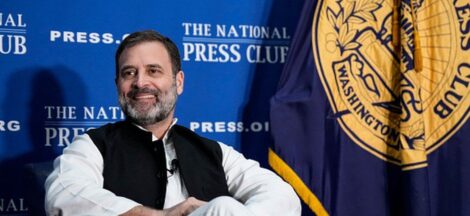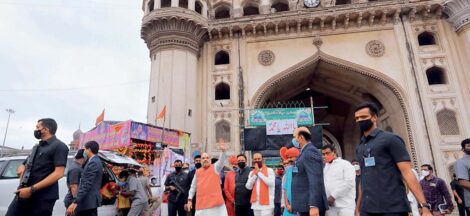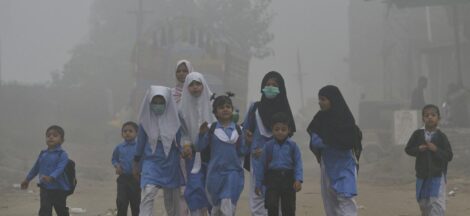By Subrata Majumder
Concerns loom large on China’s backdoor entry through the Regional Comprehensive Economic Partnership (RCEP), which is feared to be propitious of a Chinese trade trap after Trump entered into a shocking trade war against China. Currently, India is susceptible to Chinese dumping of goods, which caused a big trade deficit for India. The major reason for India’s perpetual global trade deficit is China’s dumping of goods. In 2017-18, China alone accounted for 39 percent of India’s global trade deficit.
RCEP – ASEAN 10 + 6 countries – represent 49 percent of world population, accounts for 30 percent of world GDP and makes 29 percent contribution to world trade. It accounts for 20 percent of global FDI.
Similar concern is brewing with China’s predominance in RCEP, where India has decided to join. It is the largest trade block after TPP was truncated with the withdrawal of US. The vulnerability of India’s joining the trade block cropped up with the paranoia that instead of it upturning the export potential, it may be engulfed by a surge in import, catalyzed by China’s assertiveness for large market accessibility.
India is already reeling under the trade deficit with ASEAN + six countries in RCEP and China is the major contributor. Against this background, the major concern is spill over impact of RCEP after Chinese becomes assertive to find a new and big untapped market in India. .
Against the backdrop of trade relation between India and RCEP versus China’s major stake in the block, it is presumed that China will be the game changer in the block. In 2017-18, India’s trade deficit with RCEP was valued at US $ 104.3 billion. Of this, China accounted for 60.4 percent. Considering this reality in the structural trade relation between India and RCEP, critics questioned as to how RCEP can be a strong platform for India’s export buoyancy. They argued that with the invoking of free trade in the block, opportunities would increase for China for a major entry into India and the country. Hitherto, China was exploring Indian market through India-ASEAN FTA, since China signed FTA with ASEAN in 2010. This could cause big damage to India’s domestic industries.
Indian policy makers have been bogged down by unpreparedness in concluding the RCEP deal and they did much dilly-dallying in the last Singapore meeting. But the country finally snatched a commitment from the other members for continuing the negotiations over to the next year.
India had several FTAs, both bilateral and multilateral, in the past. But unlike ASEAN, New Delhi messed up the utilization of FTAs for expanding its export. According to estimates, not more than 5 percent of India’s exports utilized FTA routes. Broadly, there are four reasons which shadowed the use of FTA, such as lower competitive manufacturing capability, a wrong duty structure modelled on inverted duty structure, strict rules of origin and China-ASEAN FTA.
India had much lower competitive manufacturing capability as compared to partner countries of FTA. Big domestic market and protection by high tariff allowed Indian manufacturers the liberty to give less importance to efficient and cost-effective production. Advantage of low labour cost is eroded by low availability of skilled workers, despite having the world’s biggest working population. Only 4.7 percent of working population is formally skilled in India against 24 percent in China. As a result, Indian exporters failed to enter the export market with qualitative and cost competitive products. They are much behind China and South East countries in manufacturing capability, which developed export based model of economy.
Prior to GST, multiple phases of India’s duty structure, known as inverted duty structure, were responsible for dampening India’s manufacturing export under FTA regime. Inverted duty means that customs duty on imports of components, parts and intermediaries is higher than the finished products.
For instance, the tyre manufacturing industry suffered a lot from the duty structure. According to Automotive Tyre Manufacturers Association (ATMA), while tyre can be imported at zero basic duty under various FTAs, natural rubber, which is a raw material, falls in the negative list. The normal rate of basic custom duty on natural rubber is 10 percent. This resulted in the high cost of domestic production of tyre, which became uncompetitive to imported tyre under FTAs. Under ASEAN FTA, Indo-Sri-Lanka FTA and India –Singapore CEPA, import of natural rubber is in negative list.
Indian exporters have expressed concern over the rules of origin in some major partner countries under FTA. According to a FICCI survey of 46 Indian companies, which are mainly engaged in trade with major 6 countries of ASEAN, viz, Singapore, Malaysia, Indonesia, Thailand, Philippines and Vietnam, rules of origin were posing hurdles to Indian exporters. About 30 percent of the respondents exporting pharmaceuticals, automotive parts and chemical products to Malaysia, Singapore, Philippines, Vietnam and Thailand highlighted the rules of origin in these countries as one of the main barriers to stem the benefit from FTA.
China-ASEAN FTA is becoming a major detriment to Indian exporters utilizing FTA for export to ASEAN. The average tariff rate on Chinese goods sold in ASEAN is 0.6 percent. Given the past experiences of poor FTA utilization by India and its trade structure with RCEP, it presages a trade trap by China, in the light of which it may be advisable for the country to reconsider its participation on the original model of the trade block. (IPA Service)
The post RCEP May End Up As Chinese Trade Trap For India appeared first on Newspack by India Press Agency.


